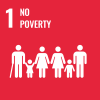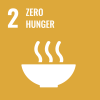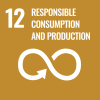
Food Systems are the people, places, and activities that bring us food. They make food available in diverse ways that influence and shape the choices we make about what to eat, when, and how.
They are complicated and constantly changing – comprising a host of moving and interconnected pieces. They support many people’s livelihoods.
Food systems encompass food supply chains, food environments, and consumer behaviour. They are driven by factors like economics, culture, technology and demography, as well as by institutional and other actions.
Our food systems – what and how we eat and where it comes from – profoundly impact our ability to achieve universal goals of human and planetary wellbeing. Sustainable Development Goals including No Poverty, Zero Hunger, Good Health and Well-being, and Responsible Consumption and Production are directly linked to food.
Food systems are at the heart of some of the most significant challenges we face today, including diet-driven ill health and environmental damage. A third of the world is hungry or malnourished, more than half of global ill health is determined by poor diets, and food systems account for a quarter of CO2 emissions.
They are also at the heart of many solutions. Food systems feed hundreds of millions more than ever before. They can now be a provider of better diets, better livelihoods for food workers, and nourish the planet safely.




